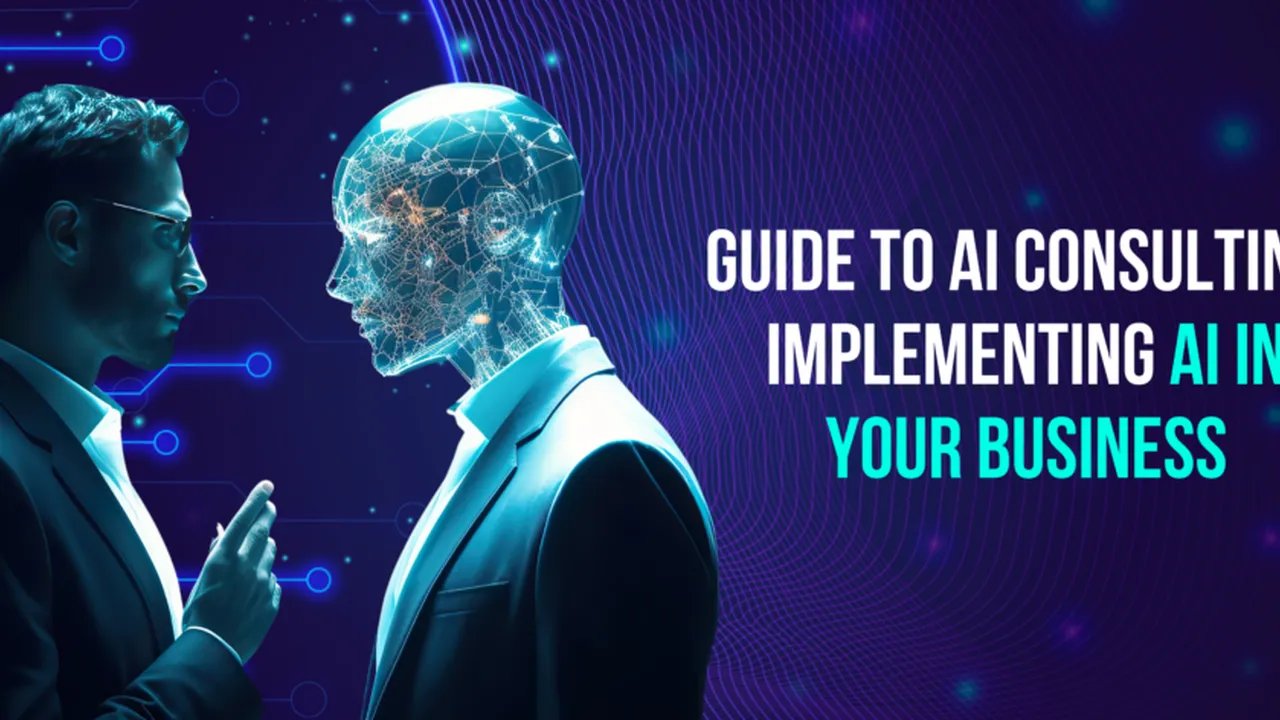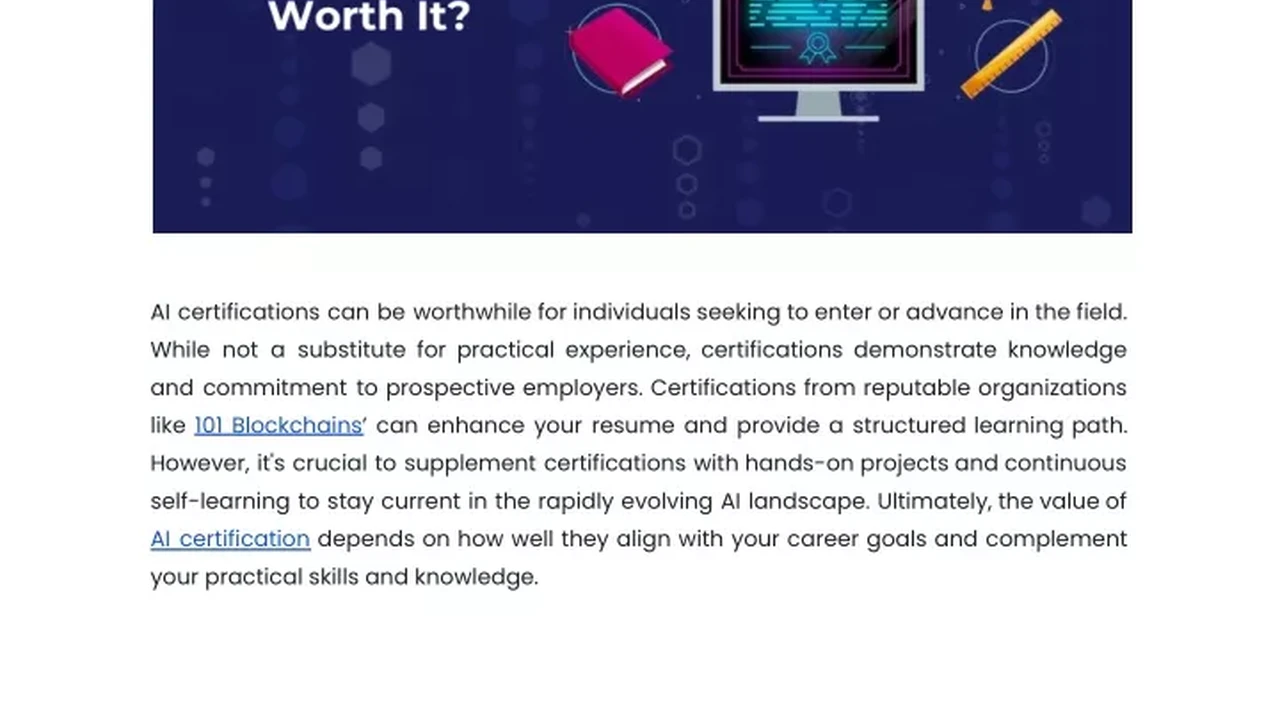Consulting on AI Implementation for Small Businesses
Advise small businesses on integrating AI tools into their operations for improved efficiency and growth.

Consulting on AI Implementation for Small Businesses
The Growing Need for AI Consulting for Small Businesses
Hey there, aspiring AI consultant! Ever noticed how everyone's talking about AI these days? It's not just for tech giants anymore. Small businesses, from your local bakery to that cool online boutique, are starting to realize that AI isn't just a buzzword; it's a game-changer. But here's the catch: most small business owners are swamped. They're juggling inventory, managing staff, dealing with customers, and trying to keep their heads above water. They know AI could help, but they have no idea where to start. That's where you come in. Offering AI implementation consulting to small businesses isn't just a lucrative side hustle; it's a chance to genuinely help these businesses thrive in a rapidly evolving digital landscape. Think about it: you're not just selling a service; you're selling efficiency, growth, and a competitive edge. It's about demystifying AI and making it accessible, practical, and profitable for the everyday entrepreneur.
Identifying AI Opportunities for Small Business Operations
So, where can AI actually make a difference for a small business? The opportunities are vast, and often, the business owner themselves might not even realize the potential. Your job as a consultant is to be a detective, spotting inefficiencies and suggesting AI-powered solutions. Let's break down some common areas:
Customer Service Automation AI Chatbots and Support Systems
Imagine a small online store that gets hundreds of customer inquiries daily. Answering each one manually is a huge time sink. This is prime territory for AI. Chatbots can handle frequently asked questions, track orders, and even guide customers through product selections. This frees up human staff to deal with more complex issues, leading to happier customers and more efficient operations.
Recommended Products for AI Customer Service
- Zendesk Answer Bot: This is a fantastic option for businesses already using Zendesk for their customer support. It integrates seamlessly, learns from your existing knowledge base, and can deflect a significant portion of common inquiries. It's great for businesses that want to enhance their current support system without a complete overhaul.
- Intercom: More than just a chatbot, Intercom offers a comprehensive customer messaging platform. Its AI capabilities allow for personalized interactions, lead qualification, and even proactive outreach. It's a bit pricier but offers a lot of value for businesses focused on customer engagement and sales.
- Tidio: A more budget-friendly option, Tidio offers live chat and chatbot functionalities. It's easy to set up and can be a great starting point for very small businesses or those with limited technical expertise. It might not have all the bells and whistles of Zendesk or Intercom, but it gets the job done for basic automation.
Comparison and Pricing (Approximate)
| Product | Key Features | Typical Use Case | Approximate Monthly Cost (USD) |
|---|---|---|---|
| Zendesk Answer Bot | Seamless integration with Zendesk, knowledge base learning, inquiry deflection. | Businesses already using Zendesk, looking to automate FAQs. | Starts around $49/agent (part of Zendesk Suite) |
| Intercom | Comprehensive messaging, personalized interactions, lead qualification, proactive outreach. | Businesses focused on customer engagement, sales, and personalized support. | Starts around $74/month (for basic features) |
| Tidio | Easy setup, live chat, basic chatbot functionalities, email integration. | Very small businesses, those new to chatbots, budget-conscious. | Free plan available, paid plans start around $29/month |
Marketing and Sales Optimization AI Powered Lead Generation and Personalization
Small businesses often struggle with reaching the right audience and converting leads. AI can revolutionize this. From identifying high-potential leads to personalizing marketing messages, AI can make every marketing dollar work harder. Imagine an AI analyzing website visitor behavior and automatically sending tailored email offers. That's powerful stuff!
Recommended Products for AI Marketing and Sales
- HubSpot CRM with AI features: HubSpot is a comprehensive CRM, and its AI capabilities are constantly expanding. It can help with lead scoring, email personalization, content recommendations, and even sales forecasting. It's an all-in-one solution for businesses looking to integrate their sales and marketing efforts.
- ActiveCampaign: Known for its robust email marketing and marketing automation, ActiveCampaign uses AI to optimize send times, personalize content, and segment audiences more effectively. It's excellent for businesses that rely heavily on email campaigns and automated workflows.
- Jasper AI (formerly Jarvis.ai): While primarily a content generation tool, Jasper can be incredibly useful for sales and marketing teams. It can generate ad copy, social media posts, product descriptions, and even sales emails, all optimized for conversion. This saves immense time and ensures consistent, high-quality messaging.
Comparison and Pricing (Approximate)
| Product | Key Features | Typical Use Case | Approximate Monthly Cost (USD) |
|---|---|---|---|
| HubSpot CRM (with AI) | Lead scoring, email personalization, content recommendations, sales forecasting, all-in-one CRM. | Businesses needing integrated sales, marketing, and customer service. | Free CRM, Marketing Hub starts around $50/month |
| ActiveCampaign | Email marketing automation, AI-optimized send times, personalized content, audience segmentation. | Businesses focused on email marketing, automated campaigns, and lead nurturing. | Starts around $29/month (for basic features) |
| Jasper AI | AI content generation for ads, social media, product descriptions, sales emails. | Businesses needing high-volume, high-quality marketing copy and content. | Starts around $49/month (for Creator plan) |
Operational Efficiency AI for Inventory Management and Supply Chain
For retail or manufacturing small businesses, managing inventory can be a nightmare. Too much, and you're losing money on storage; too little, and you're missing sales. AI can predict demand, optimize stock levels, and even identify potential supply chain disruptions before they happen. This means less waste, fewer stockouts, and smoother operations.
Recommended Products for AI Operational Efficiency
- Cin7: While not purely an AI tool, Cin7 integrates AI-driven insights for inventory management, order fulfillment, and supply chain optimization. It helps businesses automate processes, gain real-time visibility, and make data-driven decisions about stock levels and purchasing.
- Lokad: Specializes in demand forecasting and inventory optimization using advanced probabilistic forecasting. Lokad helps businesses reduce stockouts and overstock situations, leading to significant cost savings. It's particularly strong for businesses with complex inventory needs.
- Shopify with AI Apps: For e-commerce businesses, Shopify's app store offers numerous AI-powered apps for inventory management, fraud detection, and even personalized product recommendations. While Shopify itself isn't an AI tool, its ecosystem allows for easy integration of AI functionalities.
Comparison and Pricing (Approximate)
| Product | Key Features | Typical Use Case | Approximate Monthly Cost (USD) |
|---|---|---|---|
| Cin7 | Inventory management, order fulfillment, supply chain optimization, real-time visibility. | Retail, wholesale, and manufacturing businesses needing integrated inventory and order management. | Starts around $299/month |
| Lokad | Advanced demand forecasting, inventory optimization, probabilistic forecasting. | Businesses with complex inventory, aiming to minimize stockouts and overstock. | Pricing by quote (can be significant for large operations) |
| Shopify (with AI Apps) | E-commerce platform with AI apps for inventory, fraud, recommendations. | Online stores looking to enhance operations with AI functionalities. | Shopify plans start around $29/month, AI apps vary (some free, some paid) |
Data Analysis and Business Intelligence AI Powered Insights
Many small businesses collect a ton of data, but they don't know what to do with it. AI can sift through vast datasets, identify trends, predict outcomes, and provide actionable insights. This could be anything from understanding customer purchasing patterns to optimizing pricing strategies. It's like having a super-smart analyst on staff, without the hefty salary.
Recommended Products for AI Data Analysis
- Google Analytics 4 (GA4) with AI Insights: GA4 uses AI and machine learning to provide predictive metrics and automated insights about user behavior on your website and app. It's free and incredibly powerful for understanding your audience and optimizing your digital presence.
- Microsoft Power BI: While requiring some setup, Power BI allows businesses to connect to various data sources and create interactive dashboards. Its AI capabilities, like 'Quick Insights,' can automatically find patterns and anomalies in your data, making complex analysis accessible.
- Tableau: Similar to Power BI, Tableau is a robust data visualization tool with AI-powered features for data preparation, analysis, and discovery. It's known for its intuitive interface and powerful analytical capabilities, though it can be a higher investment.
Comparison and Pricing (Approximate)
| Product | Key Features | Typical Use Case | Approximate Monthly Cost (USD) |
|---|---|---|---|
| Google Analytics 4 (GA4) | Predictive metrics, automated insights, user behavior analysis, website/app tracking. | Any business with a website or app looking for free, powerful analytics. | Free |
| Microsoft Power BI | Interactive dashboards, 'Quick Insights,' connect to various data sources. | Businesses needing robust data visualization and automated insights from diverse data. | Free Desktop, Pro starts around $10/user/month |
| Tableau | Intuitive data visualization, AI-powered data prep, analysis, discovery. | Businesses needing advanced, flexible data analysis and visualization. | Starts around $70/user/month |
The Consulting Process Step by Step AI Implementation
So, you've identified the opportunities. Now, how do you actually help a small business implement AI? It's not just about recommending a tool; it's about guiding them through the entire process.
Initial Assessment and Discovery Understanding Business Needs
This is where you listen, listen, listen. Schedule a meeting with the business owner. Ask about their biggest pain points, their daily struggles, and their long-term goals. Don't jump straight to AI. Understand their current workflows, their existing tech stack, and their budget. This phase is crucial for building trust and ensuring your recommendations are truly tailored to their specific needs. You might find that what they think they need isn't what they actually need.
Solution Design and Recommendation Tailoring AI Tools
Based on your assessment, propose specific AI tools and strategies. Don't overwhelm them with jargon. Explain things in plain language, focusing on the benefits and ROI. Show them how AI will solve their problems, save them money, or help them grow. Provide a clear roadmap, outlining the steps involved, the expected timeline, and the costs. This is where you present the products we discussed earlier, explaining why each one is a good fit for their unique situation.
Implementation and Integration Hands On Support
This is where the rubber meets the road. You might be directly involved in setting up the AI tools, integrating them with existing systems (like their CRM or e-commerce platform), and migrating data. For some tools, this might be straightforward; for others, it could involve more technical work. Be prepared to roll up your sleeves or partner with a developer if needed. Remember, small business owners often lack the technical expertise, so your hands-on support is invaluable.
Training and Adoption Empowering the Team
Implementing AI is only half the battle; getting the team to actually use it is the other. Conduct training sessions for the staff who will be interacting with the AI tools. Explain why these tools are being implemented and how they will make their jobs easier, not harder. Address any fears or resistance. Provide clear documentation and ongoing support. A successful AI implementation isn't just about the technology; it's about people adopting and embracing it.
Monitoring and Optimization Ensuring Continued Success
AI isn't a set-it-and-forget-it solution. Regularly check in with the business to monitor the performance of the AI tools. Are they delivering the expected results? Are there any new challenges? AI models often need fine-tuning and optimization over time. This ongoing support demonstrates your commitment and can lead to long-term client relationships and referrals.
Pricing Your AI Consulting Services Value Based Pricing
How do you charge for this valuable service? There are a few models, but for AI consulting, value-based pricing often makes the most sense. You're not just selling hours; you're selling solutions that generate significant ROI for the business.
Project Based Fees For Specific Implementations
For a defined project, like setting up an AI chatbot or optimizing their inventory system, you can charge a fixed fee. This gives the client certainty about the cost and allows you to price based on the value delivered. Make sure your proposal clearly outlines the scope of work, deliverables, and timeline.
Retainer Agreements For Ongoing Support and Optimization
Once the initial implementation is done, offer a monthly retainer for ongoing support, monitoring, and optimization. This provides a steady income stream for you and ensures the client continues to get value from their AI investments. This is particularly useful for businesses that want continuous improvement and access to your expertise.
Hourly Rates For Ad Hoc Advice and Troubleshooting
While not ideal for core implementation, an hourly rate can be useful for ad-hoc advice, troubleshooting, or small, undefined tasks. Make sure your hourly rate reflects your expertise and the value you bring. Be transparent about your rates and how you track your time.
Building Your AI Consulting Brand Marketing Your Services
You've got the skills; now, how do you get clients? Marketing your AI consulting services requires a strategic approach.
Showcasing Success Stories Case Studies and Testimonials
Nothing speaks louder than results. Once you've helped a small business, document their success. Create case studies highlighting the problems they faced, the AI solutions you implemented, and the tangible results (e.g., '20% reduction in customer service inquiries,' '15% increase in lead conversion'). Get testimonials from satisfied clients. These are powerful marketing tools.
Content Marketing Educating and Attracting Clients
Become a thought leader. Write blog posts, create videos, or host webinars about how AI can help small businesses. Share practical tips, demystify complex concepts, and address common pain points. This positions you as an expert and attracts potential clients who are looking for solutions. Think about topics like '5 Ways AI Can Boost Your Small Business Sales' or 'Demystifying AI for Local Retailers.'
Networking and Partnerships Connecting with Business Owners
Attend local business events, join online forums for small business owners, and connect with other consultants (e.g., marketing consultants, web developers) who might refer clients to you. Building a strong network is crucial for generating leads. Consider offering free introductory workshops or webinars to local business associations.
Challenges and Considerations for AI Consultants Navigating the Landscape
It's not all smooth sailing. There are challenges you'll face as an AI consultant for small businesses.
Budget Constraints Small Business Realities
Small businesses often operate on tight budgets. You'll need to be creative in finding cost-effective AI solutions and demonstrating a clear, quick ROI. Sometimes, starting small with a single AI tool that addresses a critical pain point is better than proposing a massive, expensive overhaul.
Data Quality and Availability The Foundation of AI
AI thrives on data. Many small businesses might have messy, incomplete, or siloed data. You might need to help them clean up their data or implement better data collection practices before AI can be effectively implemented. This can be a significant hurdle, so be prepared to address it.
Resistance to Change Overcoming Skepticism
People are naturally resistant to change. Some business owners or their employees might be skeptical of AI, fearing job displacement or simply being overwhelmed by new technology. Your role is to educate, reassure, and demonstrate the benefits. Emphasize that AI is a tool to augment human capabilities, not replace them.
Staying Updated The Ever Evolving AI Landscape
The AI world moves at lightning speed. New tools, models, and techniques emerge constantly. You'll need to commit to continuous learning to stay relevant and provide the best advice to your clients. Subscribe to industry newsletters, follow AI research, and experiment with new tools yourself.
The Future of AI Consulting for Small Businesses A Bright Outlook
The demand for AI expertise among small businesses is only going to grow. As AI becomes more accessible and powerful, more entrepreneurs will seek guidance on how to leverage it. By positioning yourself as a trusted advisor, you can build a thriving consulting business that not only generates income but also genuinely helps small businesses compete and succeed in the digital age. It's an exciting time to be in this space, and with the right approach, you can make a real impact.
:max_bytes(150000):strip_icc()/277019-baked-pork-chops-with-cream-of-mushroom-soup-DDMFS-beauty-4x3-BG-7505-5762b731cf30447d9cbbbbbf387beafa.jpg)






